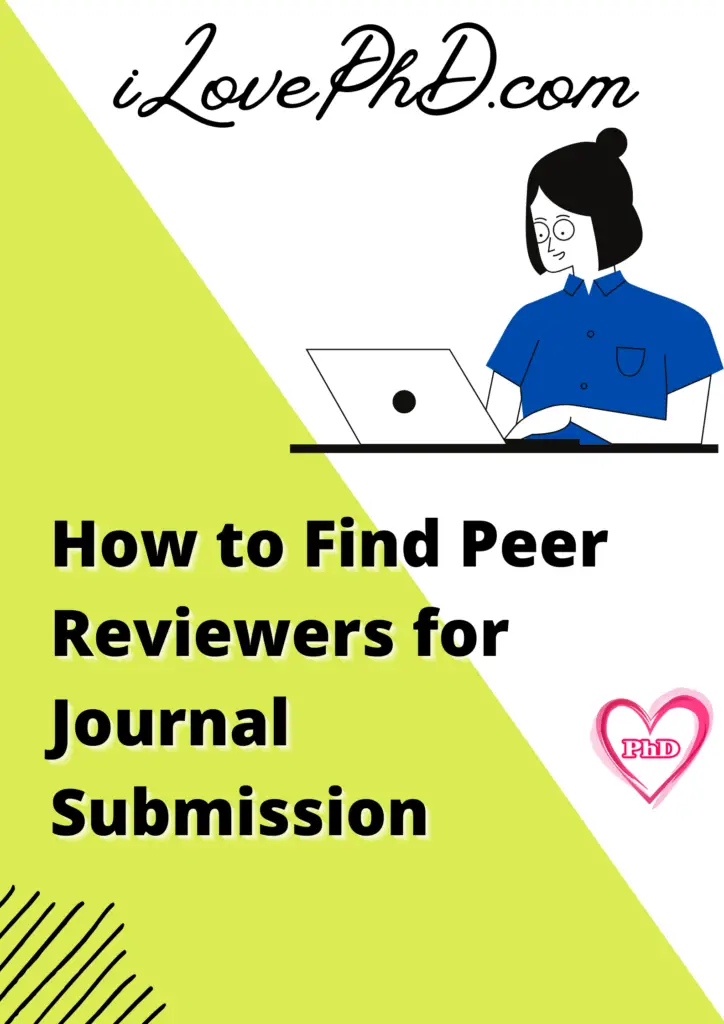Nowadays, most journal editors ask authors to suggest a list of three to six peer reviewers during the process of journal submission; however, they must not be from the same institution/research group as the author and they must not have published together. Finding potential reviewers is a challenging and time-consuming task for a researcher. The author needs to choose reviewers with appropriate expertise to evaluate the submitted manuscript and to write the comments by a deadline. Therefore, in this article, iLovePhD guides you to find potential peer reviewers for journal submission.
Know to Find Peer Reviewers for Journal Submission
1. Check the reference list in manuscript
- The first and easy step is to check the reference list of the manuscript for reviewers, which is always a good starting point.
- You can very well find the other peer research groups working in your field of research as the author of the research article.
- This helps you to choose reviewers easily that too in your area of research.
2. Use search tools and databases
Different search tools and databases are available online for free to find peer reviewers. Some of them are:
- Web of Science
This tool allows you to view authors based on a number of publications by subject, helping you to find potential reviewers with the appropriate expertise for your manuscript.
Finding reviewers via the Scopus tool has three main features; suggested reviewers, Scopus keyword search, and information on potential referees who have indicated they are willing to review.
This tool searches for reviewers based on the manuscript’s keywords and abstract, once the manuscript is submitted. You can set your search preferences on ScholarOne to ensure that search results give you the relevant information to select reviewers.
Reviewer Finder is a search tool that reduces the manual work involved in finding relevant reviewers. To use this tool, enter information about the manuscript
into the Reviewer Finder and it will provide you with a list of possible reviewers on your area of research.
Publons’ reviewer connect is a reviewer search tool that gives access to more than seven million expert researchers, from a combination of Publons’ unique database of reviewers and the world’s premier article and citation index, Web of Science.
This tool allows you to search for researchers based on manuscript keywords. This tool works by searching through the millions of articles and documents on PubMed to find the most relevant authors to fit your search.
3. Participate in national and international conferences/workshops
- Try to participate in national and international conferences, seminars, and workshops to find the other peer research groups working in your field of research globally.
- These experts are suitable to approach as potential reviewers for your manuscript assessment and examiners for your thesis evaluation.
- Get their contact information for future collaborations.
4. Check the journal’s editorial board members
- The authors can check your target journal’s editorial board members to find the reviewers.
- Involving them in the manuscript review process will help to improve the efficiency of peer review and expand your reviewer pool.
5. Check the journal’s recent authors
- The authors can look at your target journal’s authors who have published their articles recently in your area of research.
- The best reviewers are often early career researchers or junior scientists who have recently published in the journal.
Finally, once the potential reviewers are identified, the author should check on PubMed or SpringerLink to avoid conflicts of interest between the author and reviewer. Then, the authors can look for the reviewer’s contact information (affiliation, email address, telephone number) from their latest articles.
We hope this article guides the journal authors to find potential peer reviewers for journal submission easily and efficiently.
